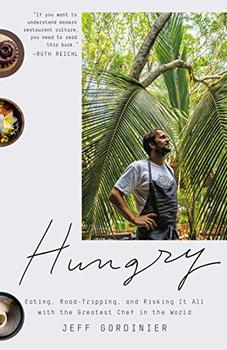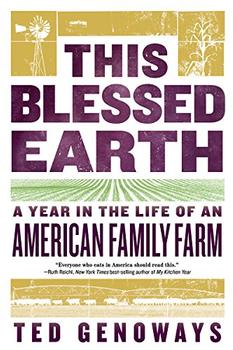Summary | Excerpt | Reviews | Beyond the book | Read-Alikes | Genres & Themes | Author Bio

An Eater's Manifesto
by Michael PollanHave you ever considered purchasing an entire hog from a local
farmer and sticking it in your freezer? I hadn't either, but after reading
Michael Pollan's impassioned "eater's manifesto", I must admit, the idea is
growing on me. Rather than presenting a faddish list of do's and don'ts that
might change next year, Pollan presents a concept of food and eating that shakes
out as remarkably sound and sustainable – not just for ourselves, but also for
our environment and fellow man. With a small but impassioned return to whole
foods; free-range meats; and fair, local farming brewing among foodies; Pollan
will inevitably preach to the choir, but some of his research is sure to get
even the most thoughtful eaters scratching their heads and changing the way they
shop, cook, and think about one of their most basic needs and pleasures.
After Pollan eye-openingly followed four meals from seed to table in The Omnivore's Dilemma, he was repeatedly asked one question by his readers: So what should I eat? His answer is simple: "Eat food. Not too much. Mostly plants," but further
reflection reveals this simple concept to be surprisingly elusive, at least
among the majority of us in the Western world. Pollan spends most of this book
examining the rise of western nutritional science and the industrialization of
food production, and explaining why both have served to eradicate our food
culture and unwittingly create what he terms "'the American paradox': a notably
unhealthy population preoccupied with nutrition and diet and the idea of eating
healthy." We've been well trained to follow sound judgments about the foods we
eat as studies reveal their benefits and dangers (saturated fat bad,
antioxidants good) but Pollan argues that isolating the various elements from
the whole foods tells us little about how those elements actually act upon the
body in concert with their myriad other parts, and scientists are beginning to
agree. Most illuminating are Pollan's criticisms of nutritional trials as he
reveals the inevitable flaws in their executions that make their findings
inconclusive at best – and dangerously misleading at worst. While skeptical
readers may find fault with the lack of hard evidence, most will be impressed by
how Pollan introduces an extremely complex examination in under 200
conversational pages, trusting that if you want the nitty-gritty, you'll refer
to his 22 pages of sources that follow his elegant abridgement of an obviously
detailed and comprehensive body of research.
The last section of In Defense of Food presents a new way of thinking
about food and eating that's quite beautiful, attractive, and simple to
understand, and this is really the gem of the book, though you have to read the
rest to fully understand why. Luckily, the solutions Pollan posits are far less
complicated than the problems he outlines – but it doesn't mean they'll be easy.
We could take more care with one of our most basic needs, and return to the
pleasures of cooking, dining and savoring, and thus a return to a respect for
the ways in which our food is produced, how it reaches our table. We could eat
less food of much greater quality, and our bodies would benefit, as would our
soil, small farmers, laborers, and other animals. It's harder to do, but as
Pollan would argue, it will be much, much harder on our bodies and the planet if
we don't.
![]() This review was originally published in The BookBrowse Review in January 2008, and has been updated for the
May 2009 edition.
Click here to go to this issue.
This review was originally published in The BookBrowse Review in January 2008, and has been updated for the
May 2009 edition.
Click here to go to this issue.

If you liked In Defense of Food, try these:

by Jeff Gordinier
Published 2020
A food critic chronicles four years spent traveling with renowned chef René Redzepi in search of the most tantalizing flavors the world has to offer.

by Ted Genoways
Published 2018
Is there still a place for the farm in today's America?
Your guide toexceptional books
BookBrowse seeks out and recommends the best in contemporary fiction and nonfiction—books that not only engage and entertain but also deepen our understanding of ourselves and the world around us.